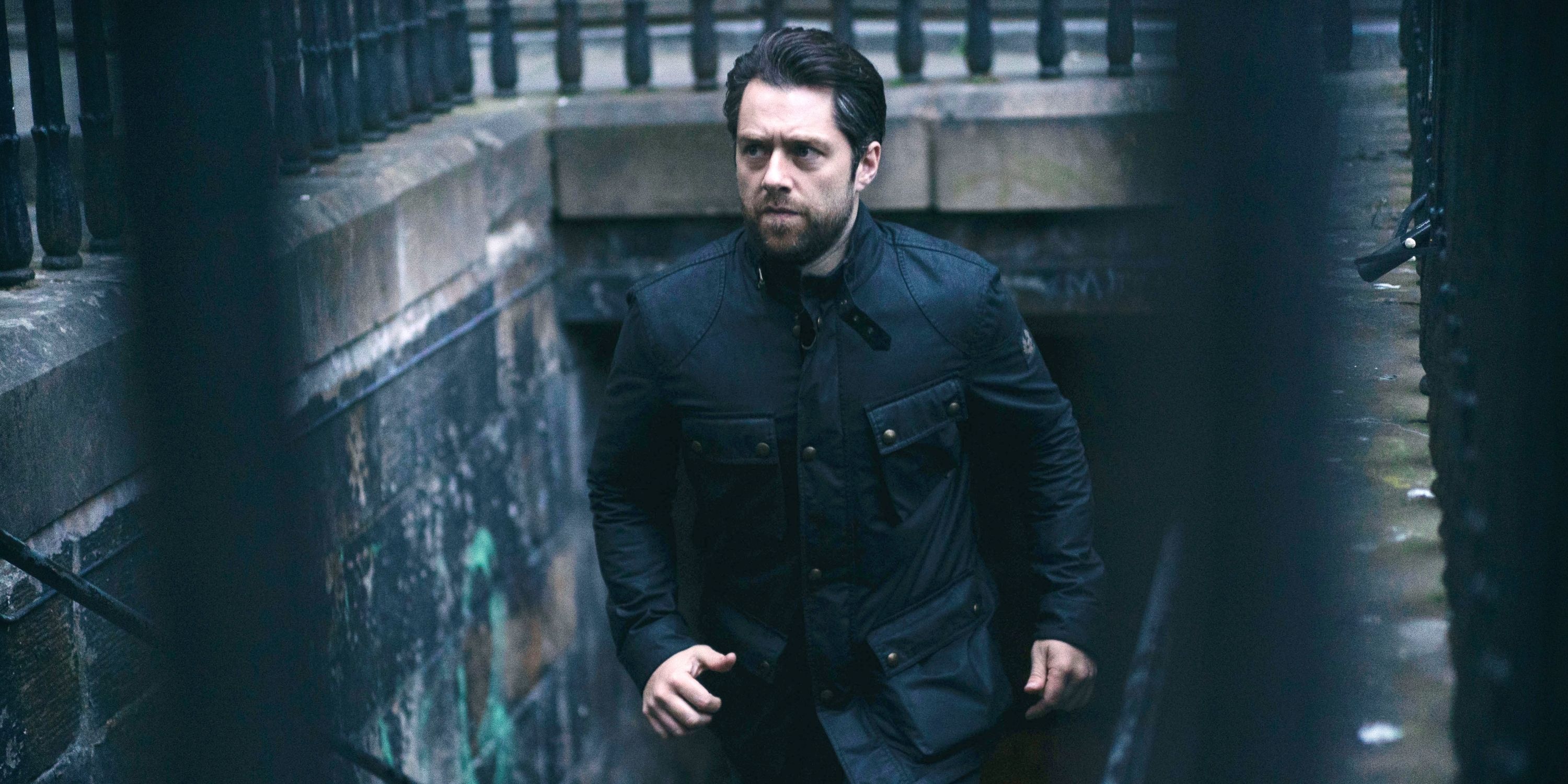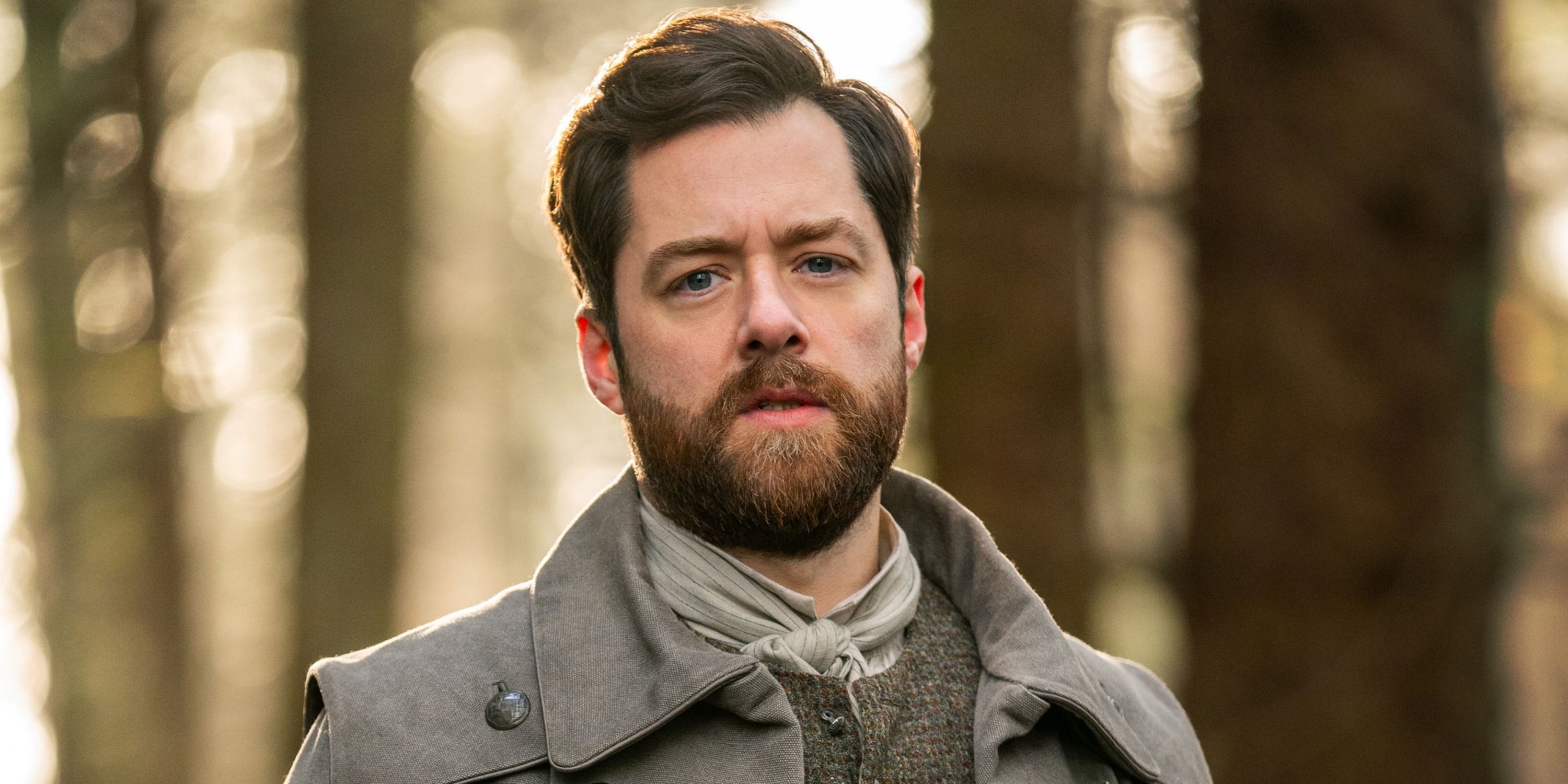
[Editor’s note: The following contains spoilers for Rebus.]
The Big Picture
- ‘Rebus,’ available to stream on Viaplay, is a character-driven cop drama that stands out in the subgenre, with its focus on the character’s personal struggles.
- The show introduces a fresh take on the iconic character of John Rebus, showcasing a darker and more complex version.
- Richard Rankin’s portrayal of Rebus explores the character’s moral ambiguity and complex relationships, leaving room for more stories to be told.
The six-episode cop drama Rebus, which aired on the BBC and is available to stream on Viaplay, is the latest take on Sir Ian Rankin’s bestselling Inspector Rebus novels, with Richard Rankin as DS John Rebus in present-day Edinburgh. As Rebus’ personal life is crumbling around him, he’s drawn into a criminal conflict that involves his own brother, which puts him in the position to choose between protecting family and doing his job.
During this one-on-one interview with Collider, Rankin discussed where a series like Rebus fits in among character-driven cop dramas like Luther and The Responder, why he never imagined himself playing John Rebus, connecting to this fresh and original reimagining, the genius introduction to this version of the character, the driving factors behind Rebus’ sometimes ill-advised actions, how he genuinely wants to figure things out with his family, and whether he feels like there’s more story to tell. He also talked about shooting Rebus between seasons of Outlander, the differences between John Rebus and Roger Mackenzie, doing an episode of the series Death by Lightning, and the genres he’d still love to work in.
Where Does ‘Rebus’ Fit In With Cop Shows Like ‘Luther’ and ‘The Responder’?
Collider: Rebus reminded me of Idris Elba in Luther and Martin Freeman in The Responder. It feels like charming men playing surly detectives battling their own demons has become its own subgenre in crime TV.
RICHARD RANKIN: I don’t think you’re far wrong there. It’s certainly a bit of a subgenre. It takes itself away from the more old school procedural crime element because I don’t think they are that. Luther and The Responder are more character-driven dramas. It’s less about the individual cases and more about the characters and their circumstances.
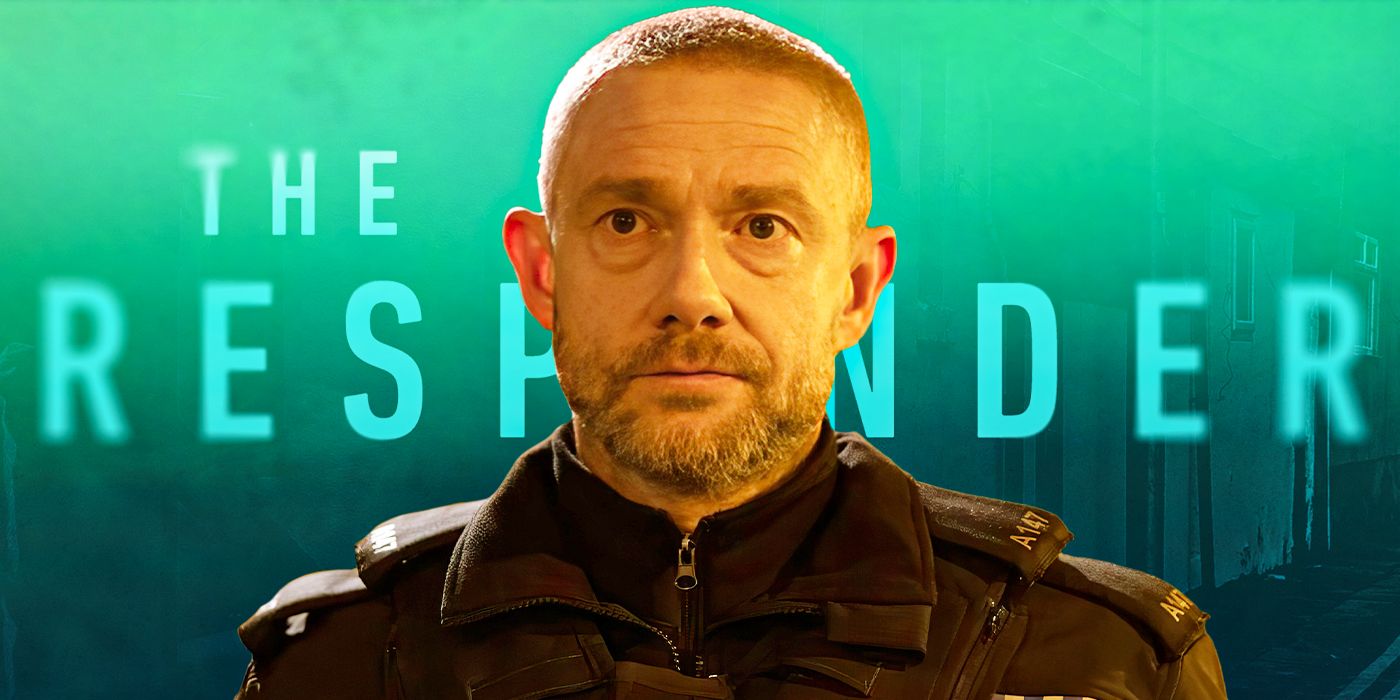
Related
‘The Responder’s Martin Freeman Has One Condition for a Potential Season 3
Freeman and creator/writer Tony Schumacher also talk about the desire to tell stories as simply and effectively as possible.
Is that something that you were actively looking to do? Did you intentionally want to join this subgenre?
RANKIN: Yeah, but I’m also looking for good writing or good characters, for sure. I don’t think I ever imagined myself in a world where I would be playing Rebus, who’s such a well-known character over here. There have been previous iterations of the character. So, I don’t think I ever imagined that I would have taken this on or was particularly looking for this kind of role. I’ve played a few cops before. I’ve played a couple of detectives before. I didn’t imagine myself wanting to do a crime show. But the opportunity that this presented and the potential for it to be a very original, very fresh, interesting reimagining, if you like, of what is a really brilliantly written character from a really brilliant author, adapted by a writer that I have a lot of respect for who I think is immensely talented, I just thought all of those things presented themselves in a really incredible opportunity that I found too good to refuse.
It seems like it’s inherently nerve-wracking to take on something that’s been tackled previously and that is a character name people are familiar with. Did it help that he is a younger version and a more contemporary version and is not exactly what people have seen before?
RANKIN: I don’t think I was really looking at it from the point of view of what they might or might not have seen before. I didn’t look back on Ken Stott or John Hannah’s version of the character. I wasn’t sure how in line with my idea of Rebus they were, so I didn’t know where we were gonna be in line with that. I was aware of the huge fan base, but I’ve overcome this thing before where I came to the conclusion, ultimately, that this had to be my own process for me rather than for the fans. Obviously, I wanted to do the character justice, but I wanted to do it justice anyway. I wanted to do my homework and do things right, and hopefully the fans were gonna appreciate this character as much as they do, in terms of their version of it. It was important to me to go and look at this character and bring something that was in keeping with Ian Rankin’s version of it, but at the same time, the adaptation that Greg [Burke] was bringing to it and marry those things up for me. Him being younger certainly provided a much wider scope, in terms of the potential for the character. We brought in elements from his younger life, which we haven’t really seen before and weren’t really brought to the foreground, I don’t think, like him being a soldier. I didn’t want to bring too much of that in, but in the story and in the books, he makes it through the selection process for the SES, and I wanted to bring an element of that, not specifically the fact that he made it through that selection process, but what that means to be a person who could.
Richard Rankin Loves the Genius First Impression Audiences Get With ‘Rebus’
I love a good character introduction. The first time you experience a character as a viewer is important and those early minutes of a TV series can say a lot about who the character is and what we can expect from them moving forward. With this, we’re really thrown right into a scene and, as the audience, we’re catching up and trying to figure out what’s going on and who’s who. And then, you’re suddenly in the back of an ambulance trying to kill a guy. What is it like, as an actor, to have that as a starting point? How did that inform the character for you?
RANKIN: I thought it was genius. I thought it did pages and pages and pages of work, in terms of the man that we are seeing. That scene was probably what sold the show to me. I thought, as an introduction to this character, especially a character that you’ve seen before or maybe read before, you haven’t seen this. It does a multitude of things. It sets a tone. It tells you what you can expect. It tells you the threshold of things that you might see, in terms of its content being quite violent, but not overly so. It does so much, in terms of informing you of the character. You see him in quite a dark way, trying to kill a man and you don’t really know why, but he’s doing it. He’s also doing it in a way that suggests he knows how, which did a lot as well. But it also helped me through the entire season. I could be a lot more subtle and nuanced when it came to any potential conflict with Rebus because you’ve seen him do it, so you don’t need to telegraph it. I used that and I kept it for moments of him potentially just snapping or breaking, and then I could just have it come out of nowhere. I didn’t have to build up anger or some internal fury, it could just come out of nothing, which I think is more interesting. It gave the character quite an unpredictable temperament, which I think is very interesting and it means that the stakes are always just a little bit higher. Things are always just simmering on a level that brings a certain energy to every scene that he’s in.
What did you think of John Rebus?
RANKIN: For the longest time, I was like, “Should we like this guy? What’s going on?” Especially with the relationship with Maggie, I was like, “Are they gonna like this guy?” It’s all very well, having one of your characters behave like this, but your protagonist? Are people just gonna think he’s a bit a chauvinist and misogynist who’s a disrespectful man that’s going about doing whatever the hell he likes? He’s not, but you would be forgiven for thinking that. There are reasons and driving factors for everything that he does, whether or not you agree with them. It all adds to the psychology of this guy, which is very complicated. That’s how we get away with some of these things.
Richard Rankin Never Wanted To Define John Rebus in Black and White Terms
How do you ultimately define him? He’s not an outright bad guy. We have those on the show. He’s clearly not an outright good guy. Is he what we would consider morally gray? Is he just someone who makes a lot of bad decisions? How did you define that?
RANKIN: I tried not to define it. I had many, many conversations with Greg Burke, who was the writer, and our director, Niall MacCormick, and they said, “Don’t try to define it.” Life isn’t black and white. Life is not like that. Life gets complicated. People find themselves in situations where there are only bad outcomes. He finds himself, a lot of the time, in situations like that. Rebus is quite self-loathing. He doesn’t feel that he particularly deserves an easy route through life or a happy existence. There’s something in him that’s quite self-destructive. A lot of it is going to come from his failed relationship with Rhona and his borderline estranged relationship with Sammy. Those two things allow you to see him in a way that you would never ever see him otherwise. You would never see that more tender side that you do with Sammy and you would never see him be himself like he is with Rhona. It’s the only time you ever see that.
He’s always something else with other people. He code shifts a little bit, but he doesn’t do it with them. It all adds to the complexity of this man. He’s quite old school, as well. He has an old school mentality of dealing with certain things and he doesn’t like modernization. He doesn’t like the modernization of police force. He doesn’t like using an iPad. He doesn’t like using these fucking electronic things. He likes a pad and a pen. He hates computers and he doesn’t like being in the office. These things all add layers and inform how this character is in any given situation, but it’s not done without the realms of believability. You always believe the situation that you find this character in.
There are moments when he says that all he wants is his family back, but does he want that or is it more the idea of them?
RANKIN: Rebus always wants something else. I actually do believe that he wants his family back. In that moment, I do believe it’s the only thing he wants. I do believe that, for that moment. Whether or not that would continue to be the case, we will see. Maybe he feels like that will bring him some semblance of being whole.
2:58
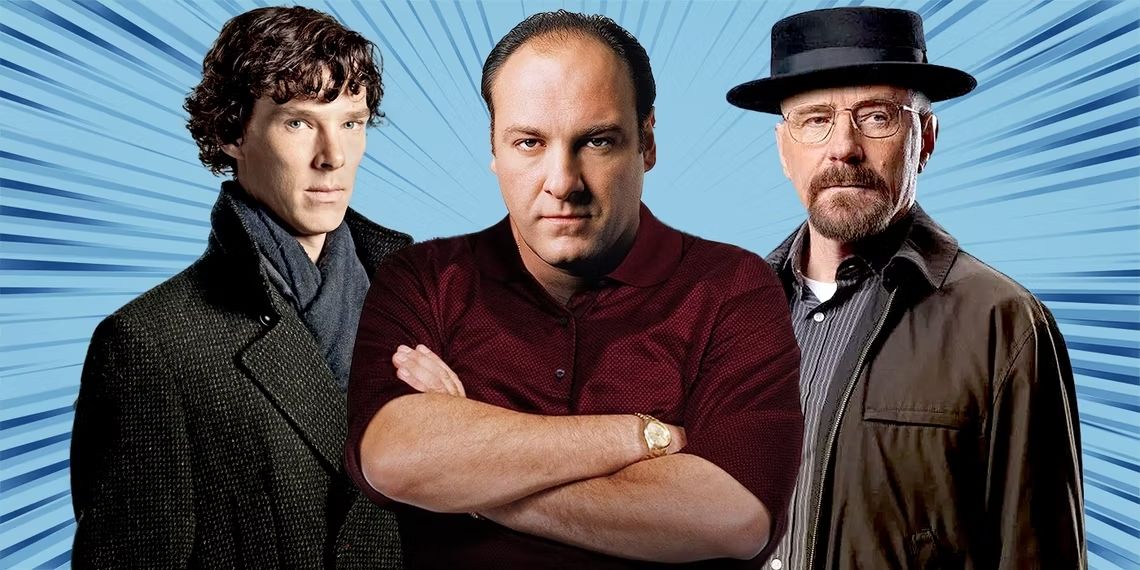
Related
The 25 Best Crime Shows of the 21st Century (So Far), Ranked
“Say my name.”
This is essentially a show about relationships. We learn so much about your character through all the relationships he has. With his partner, with his brother, with Maggie, with his ex and their daughter, and even with Ger Cafferty, we get to see so many sides of him. What did you most enjoy about digging into your character by digging into those relationships and having all those different relationships with all those different actors to explore him through?
RANKIN: It was great. It was just a fountain of things to draw from. As an actor, you can’t ask for anything more. You do see many, many facets, many versions, and many sides to this character. There are a multitude of versions of this character, which just helped complete the whole thing. You don’t always get writing like that, where you have all these very different voices coming from the same writer. Sometimes you’ll be you look at a script and any of the lines could be coming from any of the character’s mouths. We don’t have that. We have very distinctive characters in the show who all feel like they have their own beating heart, and they’re all incredible actors, as well. Being on set with them just brought the whole thing to life in quite an effortless way because everything you require is there for you. You just need to turn up and do your job. That’s wrong, you do need to do a shit ton of homework, but you know what I mean.
This is a guy that seems very tightly wound. When you start off by seeing the kind of violence he can be capable of, you then have to think about the fact that he’s likely bottling that up much of the rest of the time. Did that make him more physically exhausting to play? Was that something that you realized about him during the shoot or does that hit you once you’re done?
RANKIN: You’re bang on, he was very, very tightly wound. He holds himself in a way where he’s like a coiled spring at times. I think he’s reluctantly violent though. I don’t think he wants to be. I think he just finds himself with no other outlet other than to hit or punch or something. And also, given his previous life in the army and all the rest of it, he has that in him anyways, inherent in him. There’s this instinctive response where that’s the solution. I think it comes from a subconscious place where he’s regretful, potentially, about that. I suppose it is a bit more tiring because he’s just a bit more weary. The world is just a bit heavier for him. There’s that line when he’s going up the stairs with Siobhan when Siobhan says, “Do we have to go up the stairs? Do we have to take this route?” And he says, “Life is supposed to be difficult.” I thought that line, in itself, is just a brilliant piece of writing that sums him up. That also sums up the way that he wants other people to see him sometimes. He’s like, “You should take the hard route. Life’s not supposed to be easy. Not in this city, not in our job. Suck it up.” And he does. He gets on with it. That just really informed the character in a really quite clever way.
Richard Rankin Explains the Challenges of Juggling ‘Outlander’ and ‘Rebus’
You shot Rebus between seasons of Outlander. What was it like to go back and forth with that? What was it like to leave Roger behind and play this character, and then leave this character behind and return to Roger? Did you find one more challenging than the other?
RANKIN: Roger just lives in me somewhere. It’s been such a long time. I’ve been with that character for about nine or 10 years, or something. I remember going back to Outlander in Season 3 and Season 4 and going back to all my journals and my notes and my character work and my accent work. And then, from that point on, that part of myself because something I could switch on and off. Rebus was quite a bit different. He’s a very, very different man. You couldn’t really get much further from mild-mannered, humble wee Roger Mackenzie, could you? That takes a certain amount of shift. And because it was a new character, you have to stay sharp and you have to stay on top of those character choices that you’ve made, with that constant tension, and that constant simmering of something under the surface. You just have to be a bit more sort of focused, otherwise you could just very well end up slipping into that subconscious playing of say Roger. You could just find yourself quite easily setting into those mannerisms as an easier day. You just have to be a bit more vigilant about your character when you are new to the character.
When I watch the first episode, I see what I’m doing in it. I don’t particularly like the first episode, and I don’t mind saying that. I don’t like it in relation to the rest of the series. It’s still brilliantly written and everyone’s really great in it, but I can see what I’m doing, and I don’t like that. But literally, from the start of episode two onwards, I was like, “There’s Rebus. That’s the guy that I wanted to play. That’s the guy that I wanted to bring to the screen.” From then on, I relaxed a bit and thought, “It’s all right. I think I did it.” But the first time I watched episode one, I was just sinking into my seat thinking, “Oh, shit, I’ve missed the mark here,” except for that great opening scene, which I thought was just brilliant. I think you just need to be very vigilant. When you’ve come from playing such a long-running character, it’s just as much because of that, you settle into that being your working day. There’s a danger of doing that.
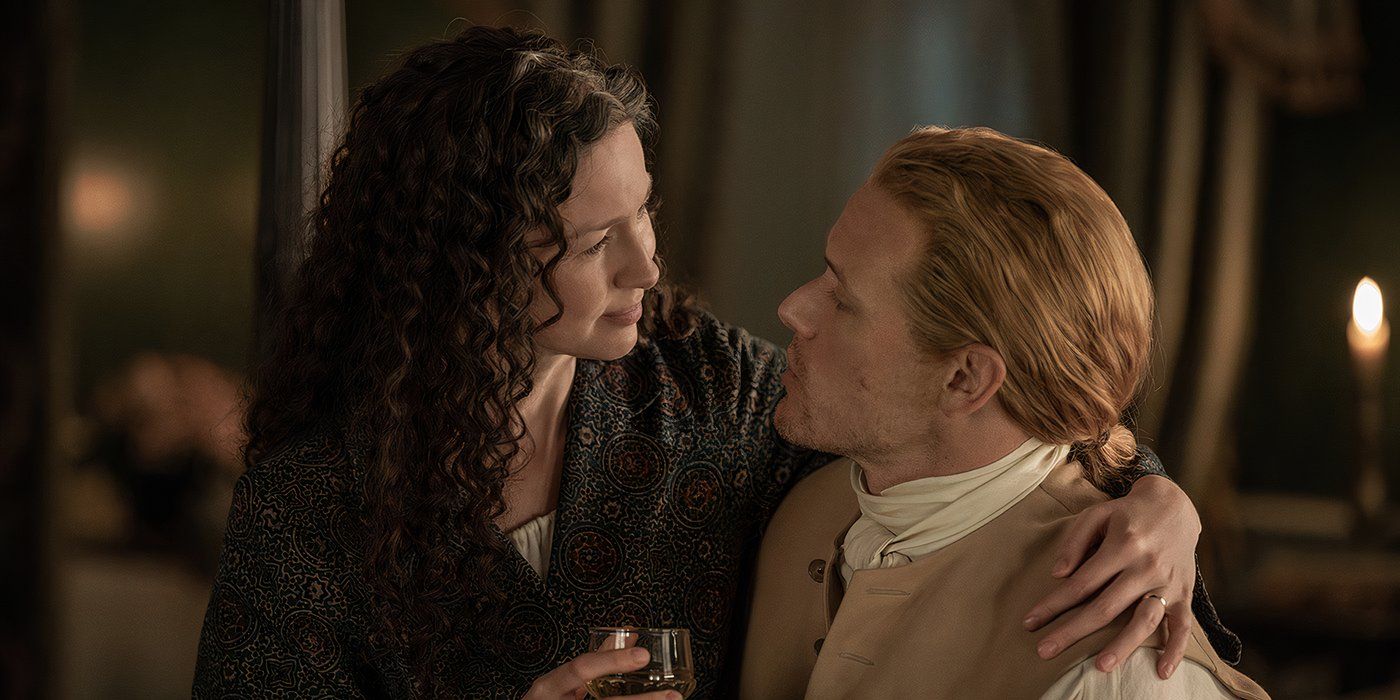
Related
‘Outlander’ Season 7 Part 2 Review: The War at Home Is Still Full of Shocks and Surprises
‘Outlander’ Season 7 returns November 22 on Starz.
It definitely feels like there’s more of Rebus’ story to tell. Have there been conversations about another season and about telling more of his story? Is that something everybody would want to do?
RANKIN: Yeah, I think so. There are endless possibilities with Rebus. The world of Rebus is enormous. Because we’ve contemporized it, there’s an endless number of stories that can be told with these guys. And I think everyone had such a good time doing it. We all really, genuinely got on very, very well. I think the cast are incredibly talented. I think everyone would love to come back and revisit it, and hopefully that’s something that we’ll get a chance to do, further down the line. I think we’ve barely scratched the surface. I think we’ve got a ways to go yet.
One of the things about success and attention as an actor is that opportunities become possible. Along with possibly another season of Rebus, have you thought about what you want to do next, especially now that you’ve officially finished shooting Outlander? Is there a dream project or a genre that you couldn’t do because of all the time constraints you had with Outlander, that you’re hoping to do now?
RANKIN: I did an episode of a thing just recently, that I filmed in Budapest. I was very lucky to be able to squeeze that in. It was called Death by Lightning, where I was working with Michael Shannon, Nick Offerman, and Betty Gilpin. We’re all in a scene together. I probably shouldn’t go into too much detail, but I remember standing there thinking, “This is fucking great. This is brilliant. These guys are incredible.” I feel like I’m resonating in a way that I maybe don’t always get the opportunity to. I felt like I was in my element and I felt that we were all playing off of each other and it just felt really exciting. I really, really loved it, and I thought, “This is the kind of thing that I want to be doing, just working with good people doing good projects with a good team. I don’t know that I necessarily care what that is. I don’t know that I necessarily need to do a specific genre. I do love sci-fi though, I have to say. And I actually want to do a Western, now that you’re asking.
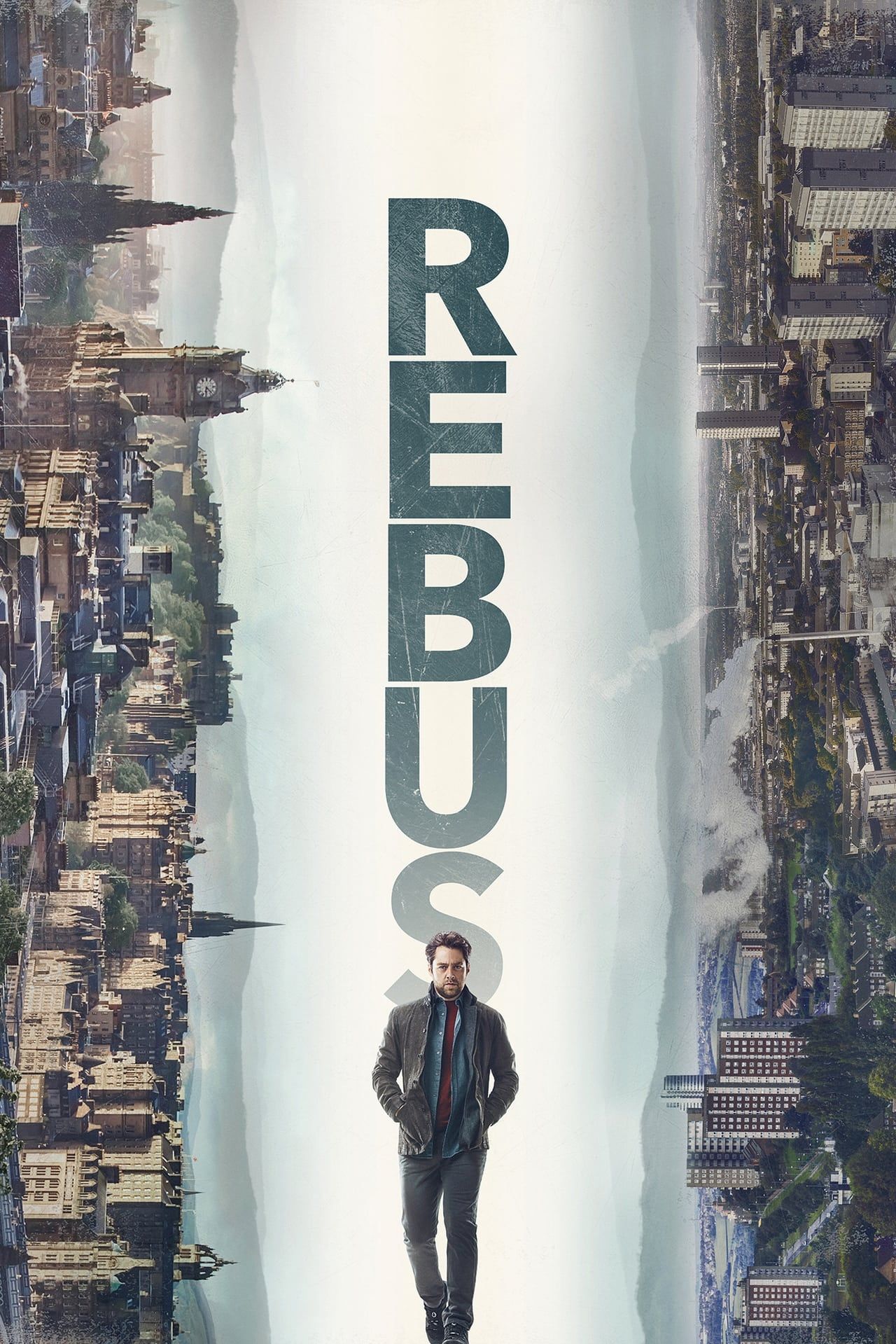
Rebus
- Cast
- Richard Rankin , Brian Ferguson , Lucie Shorthouse , Amy Manson , Stuart Bowman , Caroline Lee-Johnson , Noof Ousellam , Thoren Ferguson
- Seasons
- 1
- Producers
- Jill Green , Angela Murray , Niall MacCormick , Paula Cuddy , Eve Gutierrez , Tomas Axelsson , Gregory Burke
- Streaming Service(s)
Rebus is available to stream on Viaplay on Amazon. Check out the trailer:
Watch on Prime Video

